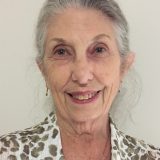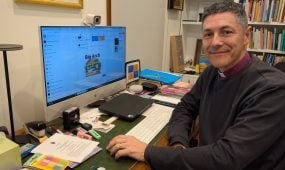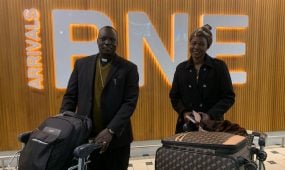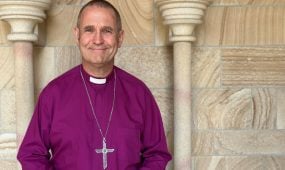PATSIMAC group creating welcome and honouring the culture of the Yugambeh people
Reflections
As part of anglican focus’ series on RAP implementation, Jean Anderson from Prayers for Aboriginal and Torres Strait Islander Ministries and Concerns (PATSIMAC) shares how her church is honouring the Yugambeh people’s continuously living culture and creating welcome
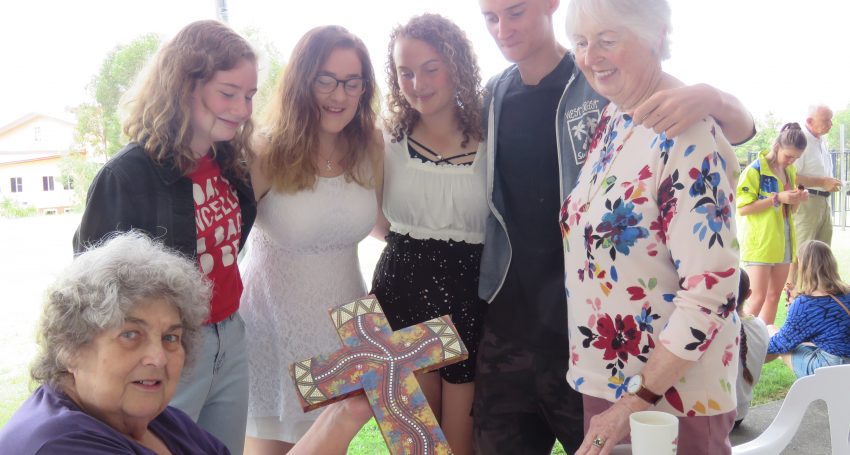
Story Timeline
- Pilgrimage to Wontulp-Bi-Buya (WBB) College
- St Mark’s supporting First Nations constitutional reform
- Anglicare’s Reconciling Histories project
- New Anglicare SQ cards further Reconciliation journey
- SEQ Friends of Nungalinya College – building cultural bridges
- Reconciliation: relationships and respect
- Reconciliation Prayer Spaces
- Exploring mission in a post-colonial Australian church
- First Nations ‘icons’ – a portal to Aboriginal and Torres Strait Islander Spiritualities
- Ancient Aboriginal practice meets Divine Christian call
- Stunning Aboriginal dot paintings to travel around our Diocese
There are three churches in the Gold Coast North Anglican Church which are on the traditional lands of the Yugambeh peoples. Our Prayers for Aboriginal and Torres Strait Islander Ministries and Concerns (PATSIMAC) group was established some ten years ago as a prayer ministry for Aboriginal and Torres Strait Islander peoples. It continues this ministry still, meeting monthly to pray for members and current and emerging leaders of the Aboriginal and Torres Strait Islander (ATSI) Christian community, and for organisations such as the Grasstree Gathering, auspiced by Common Grace and colleges, such as Nungalinya College in Darwin. PATSIMAC organises events, engages in fundraising activities and supports other Aboriginal and Torres Strait Islander activities in and outside the Parish.
Advertisement
Out of this ministry grew a more general recognition of the need to support Reconciliation and to be involved in Diocesan processes of Reconciliation conducted under the umbrella of Reconciliation Australia. One of our founding members, Bev Huguenin, was a participant in the development of the first Anglican Church Southern Queensland Reconciliation Action Plan (RAP) 2016-2018, and the group continues its representation on the RAP Working Group today, as it begins the development of the second three-year plan for 2019-2021.
Involvement in the RAP has given us a framework in which to improve our knowledge and understanding of Aboriginal and Torres Strait Islander cultures; demonstrate respect for First Nations peoples, their history and their decisions; and, hasten Reconciliation through review of parish administrative practices and the shared celebration of key events, such as Reconciliation and NAIDOC Weeks. With the proposed new RAP including a more direct appeal to parishes to become involved in the Diocesan commitment to Reconciliation, we have chosen a practical way to make ours generally known.
Advertisement
This is the establishment of a permanent display space signifying welcome in each of our three Gold Coast North churches, which will include a plaque acknowledging Yugambeh Country. While this work is still in progress, we have received the artworks we commissioned from Stevie Jean O’Chin to form part of this display. Stevie Jean is Kabi Kabi Nation and Koa Nation on her father’s side and Yuin Nation on her mother’s side. Although each painting is slightly different, all are in the form of a cross and the one pictured here depicts the symbolic elements common to all. This one is placed inside the main entry to St Matthew’s Anglican Church in Upper Coomera.
The black wavy lines in the centre of the cross represent the broken body of Christ. The white dots represent the triumph of victory over darkness, which came through His sacrifice. The multi-coloured background represents the multitude who witnessed His death. The four ends of the cross represent the story of Christ’s love going out to the four corners of the earth; and, the clusters of white dots represent the many people who became believers in response to the Gospel.
Whilst this artwork speaks to our welcome to all Aboriginal and Torres Strait Islander peoples in our places of worship, it also speaks to us of our shared lives as children of God wherein we are called, in the name of Jesus, to be reconciled, to love and to care for each other.

